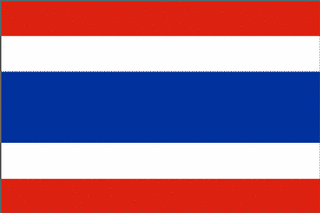Russia and its neighbors may boost crude oil shipments through an Israeli pipeline, helping them compete against Persian Gulf nations for sales in Asia
Published:
3 November 2003 y., Monday
The 254-kilometer Eilat-Ashkelon pipeline, which has flowed from the Red Sea to the Mediterranean for more than 30 years, will reverse direction for a second time in November. A tanker is set to leave the Red Sea port of Eilat, bound for Asia, with oil sent from Ashkelon on the Mediterranean.
Russia wants to sell more oil in Asia, where demand is growing faster than in Europe, as China and Japan seek to reduce their dependence on Middle East exports. The pipeline gives oil companies an alternative to the longer route around Africa and lets them avoid restrictions in Egypt's Suez Canal.
How much crude will be exported across Israel will depend on the so-called arbitrage window, when Russian oil prices are low enough to attract Asian buyers. The pipeline may make Russian crude oil, which costs about four times as much to produce as Middle Eastern grades, more competitive by reducing transport distances and costs.
Very large crude carriers, or VLCCs, which can carry about 2 million barrels of oil, take 10 days to travel from the Red Sea to Asia compared with 30 to 35 days from the Mediterranean.
A tanker is scheduled to unload about 2 million barrels of Russian Urals and Kazakh Tengiz crude at Ashkelon in the second half of November, shipbrokers said.
Šaltinis:
Bloomberg
Copying, publishing, announcing any information from the News.lt portal without written permission of News.lt editorial office is prohibited.
The most popular articles
 In January 2009, the EBRD commissioned two Italian consultants to study Turkey's sustainable energy market in preparation for future investments.
more »
In January 2009, the EBRD commissioned two Italian consultants to study Turkey's sustainable energy market in preparation for future investments.
more »
 Next week a delegation of more than 50 Chinese businessmen, accompanying the Chinese Vice-Premier Hui Liangyu, are arriving to Lithuania.
more »
Next week a delegation of more than 50 Chinese businessmen, accompanying the Chinese Vice-Premier Hui Liangyu, are arriving to Lithuania.
more »
 The German developer “ECE” together with Lithuanian partners opened a new shopping and entertainment centre Ozas Gallery in Vilnius.
more »
The German developer “ECE” together with Lithuanian partners opened a new shopping and entertainment centre Ozas Gallery in Vilnius.
more »
 As it embarked on an ambitious stimulus spending, Thailand turned to the World Bank for advice on how to fast track the spending coupled with proper management controls to keep programs on the rails.
more »
As it embarked on an ambitious stimulus spending, Thailand turned to the World Bank for advice on how to fast track the spending coupled with proper management controls to keep programs on the rails.
more »
 Peter Reiniger Business Group Director for Central Europe and the Western Balkans from the European Bank for Reconstruction and Development visited Latvia to sign subordinated loan agreement with Parex banka.
more »
Peter Reiniger Business Group Director for Central Europe and the Western Balkans from the European Bank for Reconstruction and Development visited Latvia to sign subordinated loan agreement with Parex banka.
more »
 On Monday AB DnB NORD Bankas started placement of a 13-month fixed-rate Lithuanian government bonds. It is the first time when Lithuanian sovereign USD denominated securities will be available on Lithuania’s retail market.
more »
On Monday AB DnB NORD Bankas started placement of a 13-month fixed-rate Lithuanian government bonds. It is the first time when Lithuanian sovereign USD denominated securities will be available on Lithuania’s retail market.
more »
 The Swedish business daily Dagens Industry published an interview with Andrius Kubilius, the Prime Minister of Lithuania, to Bloomberg News.
more »
The Swedish business daily Dagens Industry published an interview with Andrius Kubilius, the Prime Minister of Lithuania, to Bloomberg News.
more »
 The economic crisis still has a firm grip on large parts of the world. But Sweden’s Minister for Trade Ewa Björling can see bright spots.
more »
The economic crisis still has a firm grip on large parts of the world. But Sweden’s Minister for Trade Ewa Björling can see bright spots.
more »
 The European Bank for Reconstruction and Development and KfW Entwicklungsbank (The German development bank) are providing a financing programme worth up to €28.9 million to MegaBank - one of the strongest regional banks in the eastern Ukraine.
more »
The European Bank for Reconstruction and Development and KfW Entwicklungsbank (The German development bank) are providing a financing programme worth up to €28.9 million to MegaBank - one of the strongest regional banks in the eastern Ukraine.
more »
 A settlement in an international tax dispute that strained U.S. ties with Switzerland.
more »
A settlement in an international tax dispute that strained U.S. ties with Switzerland.
more »